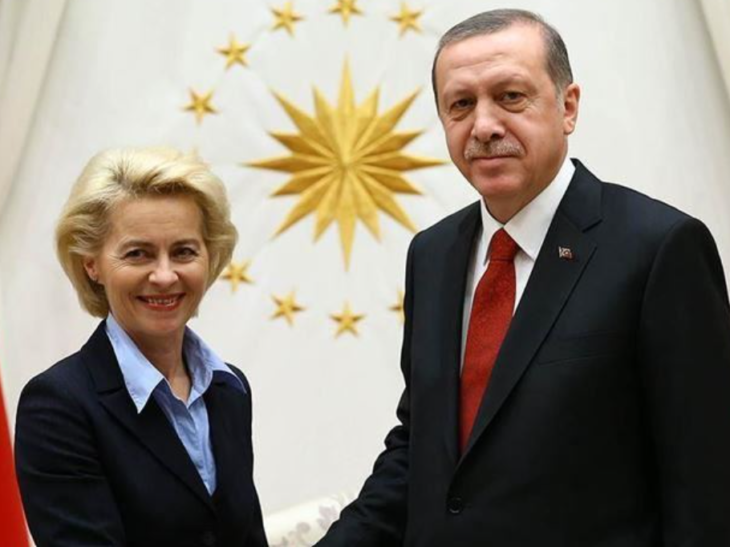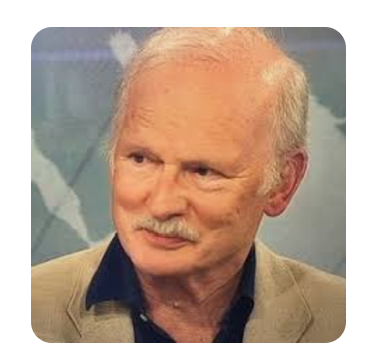Robert Ellis: Cyprus, A Stone in Turkey’s shoe
 cyprus
cyprus
The armistice between North and South Korea is a frozen conflict that Kim Jong-un would like to unfreeze, and Northern Ireland and Eire have learned to cohabit. The Cyprus issue, on the other hand, which Lyndon B. Johnson called “one of the most complex problems on earth”, plays a major role in the turbulence in the Eastern Mediterranean.
Over a thousand years ago the Arab geographer Al-Muqaddasi noted, “The island of Qubrus is in the power of whichever nation is overlord in these seas,” and he was not far wrong. It was garrisoned by the Crusaders, followed by the Venetians to protect their Mediterranean trade. Three hundred years of Ottoman rule began in 1571, when the Venetian governor literally got stuffed, and the British took over in 1878 to protect the Suez Canal.
The Treaty of Lausanne (1923) established the borders of modern Turkey and Turkey accepted the British annexation of the island. However, President Erdogan has made plain Turkey has the political, economic and military power to tear up “the immoral maps and documents imposed on it.”
In 1956 Turkey adopted the proposals laid out in the Erim report, which established as its policy the right to separate self-determination for the Turkish Cypriot minority. In 2001, in his key work “Strategic Depth”, the architect of Turkey’s ‘neo-Ottoman’ foreign policy, Ahmet Davutoglu, stated: “Even if there was not one single Muslim Turk over there, Turkey would have to maintain a Cyprus question. No country could possibly be indifferent to an island like this, placed in the heart of its vital space.”
When Cyprus became independent in 1960, its first president, Archbishop Makarios, was determined to achieve enosis (union with Greece) but this backfired. When conflict between the two communities, Greek and Turkish, broke out, in 1964 the UN intervened, and UNFICYP has been there since.
In 1974 the Greek military junta backed a coup by Greek Cypriot extremists, which overthrew Makarios with the aim of declaring enosis. According to the Treaty of Guarantee, Turkey was entitled to intervene, which it did, and has since occupied northern Cyprus.
In 1975 reunification talks began under the aegis of the UN, but in what secretary-general Kurt Waldheim called “the most thankless and frustrating task” of his career all attempts at reunification have failed. The last attempt was at Crans Montana in Switzerland in 2017, and once again a bizonal, bicommunal federation was rejected.
The Turkish Cypriot position has since hardened. In 1983 the TRNC (Turkish Republic of Northern Cyprus) was declared, only recognized by Turkey. The Turkish Cypriot leader, Ersin Tatar, has demanded recognition of the TRNC’s sovereign equality as a precondition for further talks. UN Secretary-General António Guterres has also shifted his ground and is prepared to accept a confederation as a solution.
Repeated attempts have been made by the OTS (Organisation of Turkic States) to legitimise the secessionist entity, which have been rejected by the European Union.
There is also another dimension to the conflict. The discovery of vast gas and oil resources in the Levant Basin has led to a new source of conflict between Cyprus and Turkey. In accordance with UNCLOS (UN Convention on the Law of the Sea) Cyprus has delimited its own EEZ (Exclusive Economic Zone) and concluded agreements with Egypt, Lebanon and Israel.
Turkey is not a signatory to UNCLOS and insists that the extent of its continental shelf and shoreline overrides the median line principle. Accordingly, Turkey’s “Blue Homeland” maritime strategy lays claim to areas of the EEZs belonging to Cyprus and Greece.
There is also a strategic dimension. There is trilateral cooperation between Israel, Cyprus and Greece, and the Eastern Mediterranean Gas Forum founded by Egypt in 2019 excludes Turkey. The same year, the U.S. Congress passed the Eastern Mediterranean Security and Energy Partnership Act in support of Greece as a valuable NATO member, Israel as a steadfast ally, and Cyprus as a key strategic partner.
At independence, Britain retained two sovereign base areas in Cyprus, Akrotiri and Dhekelia. The air base at Akrotiri has provided a jumping-off point for air strikes in the Middle East. On Tuesday, Prime Minister Keir Starmer will pay a one-day visit to Cyprus for bilateral talks, the first by a UK prime minister since 1971.
In addition, the need to find a comprehensive solution to the Cyprus issue constitutes a stumbling block for Turkey’s strategic objective of EU membership, which has caused Turkey to seek membership of BRICS.
In March Cyprus opened a sea corridor for aid to Gaza, which has opened American eyes to its significance. Consequently, the US and Cyprus have engaged in a strategic dialogue and Cyprus is in the running for the designation MNNA (Major Non-Nato Ally), particularly after the meeting between Cypriot President Nikos Christodoulides and U.S. President Joe Biden.
The defense dynamics of the region have also shifted with American plans to utilize Cypriot bases for regional operations. Turkey is closely monitoring developments and warns it will take “necessary military and political measures” to protect Turkish Cypriot interests.
Cyprus, in turn, has beefed up its air defenses with acquisition of the Israeli Barak MX system, and President Christodoulides has put in a congratulatory call to President-elect Donald Trump to strengthen relations.
The question is which way the Trump administration will jump, but according to former Cypriot ambassador Euripides Evriviades there is no indication of a medium-term US withdrawal from the region.
Robert Ellis is a Turkey analyst and commentator. He is also an international advisor at RIEAS (Research Institute for European and American Studies) in Athens.
Reprinted with the permission of the author
IMPORTANT DİSCLOSURE: PA Turkey intends to inform Turkey watchers with diverse views and opinions. Articles in our website may not necessarily represent the view of our editorial board.
Follow our English language YouTube videos @ REAL TURKEY: https://www.youtube.com/channel/UCKpFJB4GFiNkhmpVZQ_d9Rg
And content at Twitter: @AtillaEng
Facebook: Real Turkey Channel: https://www.facebook.com/realturkeychannel/
Related articles
Most Read Today mobile
4






